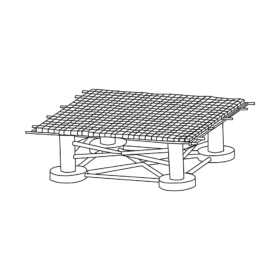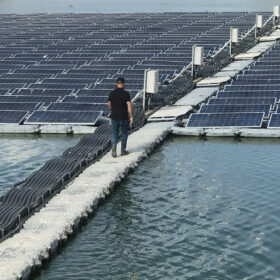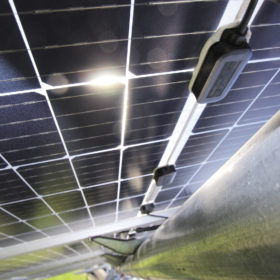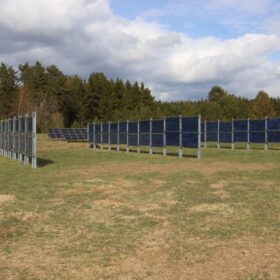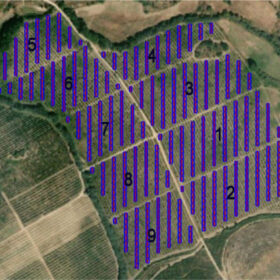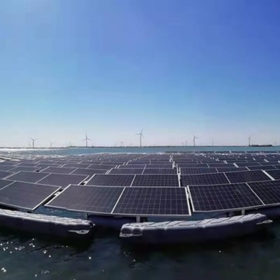New modular design for offshore floating photovoltaic platforms
A team of scientists from China and the United States studied ways to optimize floating photovoltaics for offshore use. It found that the robustness of the systems was influenced by the size and number of platforms, as well as the types of connections between platforms.
All floating PV technologies at a glance
An international research team has produced a comprehensive overview of more than 300 works of published literature on floating PV, spanning 2013 to 2022. The scientists laid out the benefits and challenges of the technology and pointed to gaps that should be filled with future studies.
New research analyzes performance ratios of bifacial PV
A comparison between monofacial and bifacial PV systems in Ghana showed how changes in system parameters can affect the bifacial gains. The researchers found that changing the albedo of a land-based system can increase the bifacial gain from 5.25% to 14.5%.
New methodology to identify suitable land for agrivoltaics
Researchers in Sweden have outlined a new methodology to identify suitable surfaces for agrivoltaic projects in their home country. They found that approximately 8.6% – roughly 38,485 km2 – of its land has the potential to host agrivoltaic facilities.
Research finds agrivoltaics have payback time of less than five years in Portugal
A group of researchers from the University of Lisboa and the Military Academy reported on the viability of agrivoltaics in Portugal. It found that spaced rows of PV modules combined with shadow-friendly crops had the most promising return and a payback period of less than five years.
The effect of height, tilt angle, and temperatures on floating PV performance
A research team studied factors influencing floating PV efficiency and energy production and determined the optimal tilt and height to achieve lower cell temperatures compared with land-based PV.
Photovoltaics can reduce economic poverty by 4.5% in China
Researchers assessed the effect of solar energy projects on poverty in China and determined that PV systems can play a role in reducing multiple dimensions of poverty while also contributing to environmental protection.
China’s floating PV potential estimated at 862.6 GW
Researchers from China looked at 875 reservoirs in the country and found that the potential annual power output for floating PV technology could reach up to 1,423.8 TWh.
Topography-induced shading on floating PV
Researchers in Turkey have studied the impacts of topography-induced shading on floating PV at the Ayvalı hydroelectric power plant and have identified differences between the regions with the highest and lowest electricity production potential.
New research finds Netflix users may consider solar leasing an attractive solution
A group of researchers in Belgium studied the effect of circular business models on residential solar adoption and found a link between Netflix users and consumers open to certain business models.

